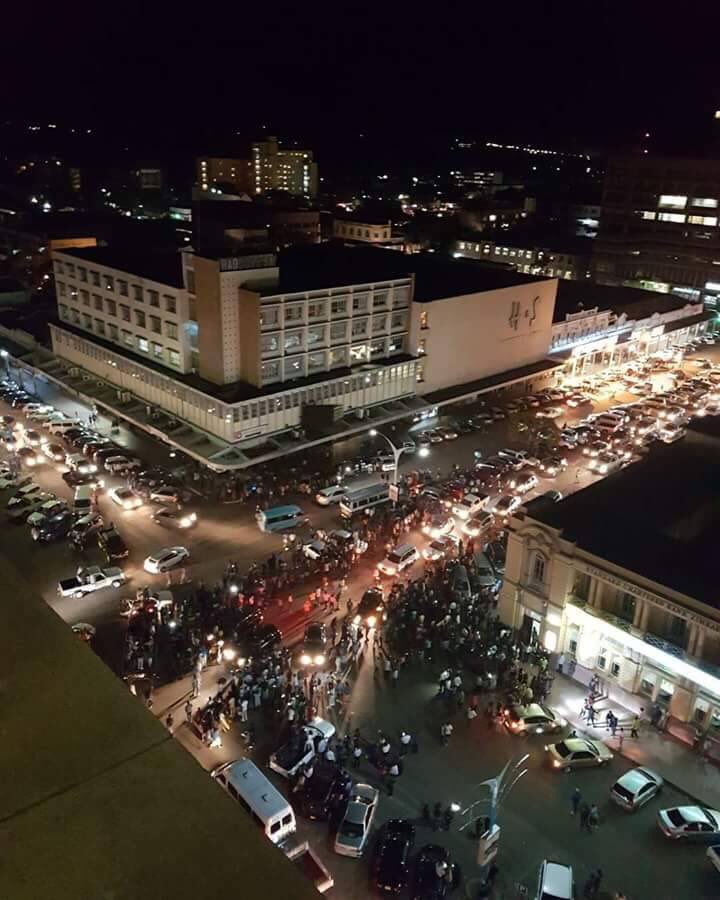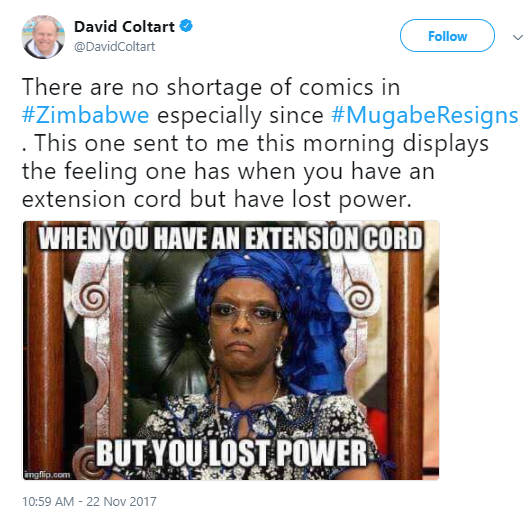

New Delhi: Robert Mugabe has finally resigned from the post of the President of Zimbabwe.
Mugabe’s highly controversial tenure ended in an announcement at a special joint session of parliament where MPs had convened to impeach the 93-year-old leader who dominated Zimbabwean public life for decades.
Lawmakers erupted into cheers, and jubilant residents poured into the streets of Harare after his resignation was announced.

Mugabe had previously refused to quit despite last week’s military takeover and days of protests.
He presided over a deepening economic crisis in Zimbabwe, where people are on average 15 percent poorer now than they were in 1980.
Former Vice President Emmerson Mnangagwa is likely to succeed Mugabe.
“I, Robert Gabriel Mugabe… hereby formally tender my resignation… with immediate effect,” said the letter which was read out by parliamentary speaker Jacob Mudenda.
“My decision to resign is voluntary,” he said, speaking of his “concern for the welfare of the people of Zimbabwe and my desire to ensure a smooth, peaceful and non-violent transfer of power”.
Mugabe, a Marxist guerrilla-turned-politician, who came to power in 1980 after the country won its independence from Britain, ruled through a heavy mix of repression of his opponents and rewards for his allies.
He oversaw the massacre of thousands of civilians in the 1980s and outmaneuvered rivals in his party and in the opposition. The country’s Fifth Brigade is believed to have killed up to 20,000 people, mostly supporters of Mugabe’s main political rival.
During his tenure, he took many decisions that choked the economic progress of the country. In the 1990s, food production declined as a result of his decision to strip white farmers of their land and hand them to members of the black population who, in many cases, had no farming experience.
He wanted to appoint his wife, Grace, 52, as his successor. Despite being a newcomer to politics and being unpopular with the people, she made clear that she wanted to be president and ridiculed politicians who had been waiting decades to succeed her husband.
Mugabe’s downfall started on Nov. 6, when he fired Vice President Mnangagwa, clearing the way for Grace Mugabe to take over the presidency at some point.
Mnangagwa had the blessing of the military. General Constantino Chiwenga, Commander of the Zimbabwe Defence Forces is an ally of Mnangagwa. People like Gen Chiwenga, who fought in the Rhodesian Bush War have exercised excessive control over the state. Mnangagwa directed the 1970s fight for independence and draws his power from the military so it was natural for them to intervene after he was sacked by Mugabe early this month.
After years of neglect the country now needs a stable, democratic development that guarantees rule of law and respect for human rights.









